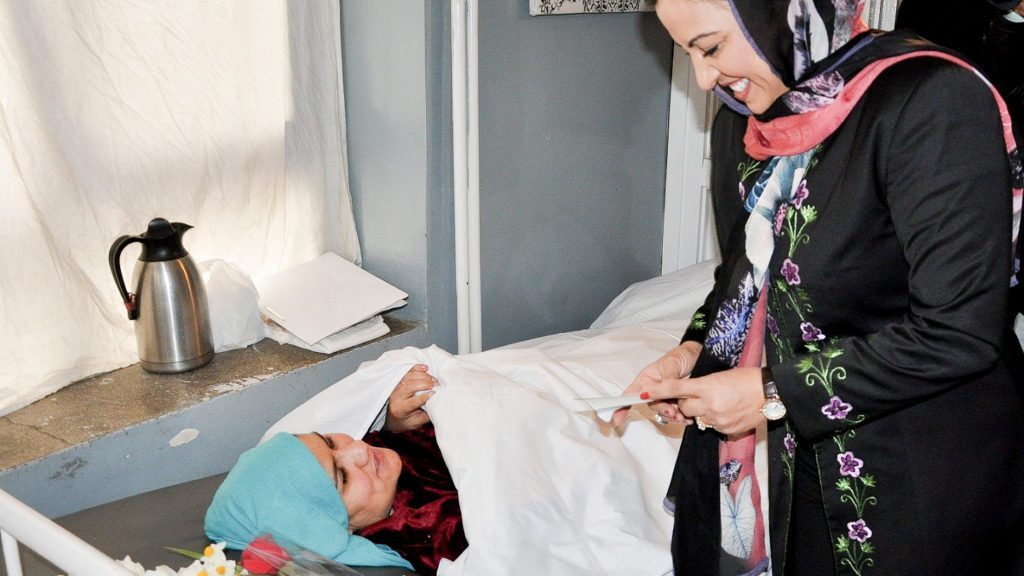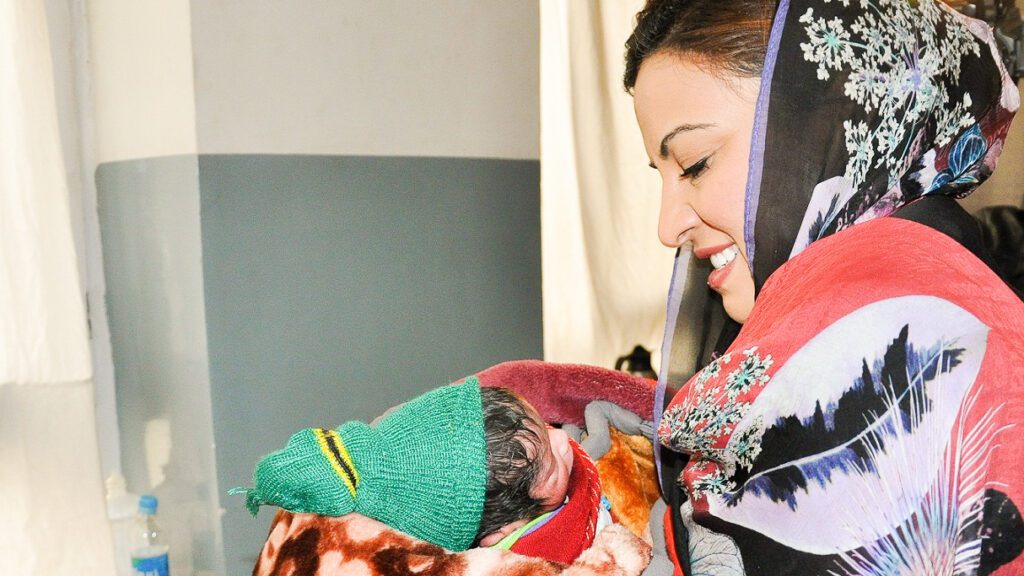Restoring Health and Hope to Afghan Women Suffering from Obstetric Fistula
The reality is heartbreaking and hard to fathom. Thousands of women in Afghanistan suffer from a debilitating injury received during childbirth that forces them to live in the shadows, ashamed, humiliated, ostracized by society and sometimes even by their own families. An event in their lives that should have been cause for celebration instead turned into a nightmare from which many will suffer for the rest of their lives.
For many women around the world, childbirth is often fraught with peril. Approximately 12 women die in childbirth every day in Afghanistan – one of the highest maternal mortality rates in the world. And for every woman who dies, it’s estimated that 20 survive with significant injuries.
One of the most common of these injuries is obstetric fistula. Most often the result of prolonged and obstructed labor, women with obstetric fistula suffer from chronic leaking of urine or feces, or both. This condition has been all but eliminated in the developed world and is easily repaired by surgery when the occasional injury occurs. But in developing countries, with high rates of poverty and lack of access to decent medical care, it is epidemic. Globally, it is estimated that two million women suffer from obstetric fistula. In Afghanistan, roughly four of every 1,000 women are living with this life-destroying injury.
The psychological effects of this condition are devastating. Without resources to deal with the continual hygiene required to keep themselves clean, the women are often shunned from society. Unable to participate in society and limited in their interaction with their families, depression often sets in and thoughts of suicide are never far off.
“Death is more preferable than such a tragic life. I had tried to commit suicide many times, but I used to be too weak even for that.” Zemzem, a fistula sufferer for 35 years


Since 2006, the Bayat Foundation, Afghanistan’s largest humanitarian organization, has been on a mission to rebuild Afghanistan by bringing hope and support to the neediest and most at-risk people in their country. A variety of initiatives aimed at women and families, including women’s healthcare and empowerment, seek to improve the quality of life and restore the dignity of Afghan women.
MATTER is honored to partner with the Bayat Foundation in this worthy cause. To date, the Bayat Foundation, in collaboration with MATTER, has built or refurbished 13 hospitals throughout Afghanistan, impacting over two million people. On April 2, 2018, a groundbreaking ceremony took place to celebrate our newest collaborative project: the Bayat-MATTER Maternity and Neonatal Hospital in Kabul City. MATTER will help equip this four-story, 25,000 square foot facility.
“When complete, it will be the most modern and well-equipped medical facility in Afghanistan, providing women with specialty treatments currently unavailable in the country and all patients with world-class healthcare. This hospital will truly make a difference to the lives of mothers and young children in our nation, and we are proud to working together with our friends at MATTER to serve Afghans and nourish the lives of those in need.” – Dr. Ehsanollah Bayat, Co-Founder and Chairman of the Bayat Foundation
Offering a full range of comprehensive healthcare for women, including a cancer clinic to address the rising levels of cervical cancer among Afghan women, there will also be special emphasis on fistula treatment and recovery at the hospital. Surgical mission teams will train Afghan doctors on fistula repair surgery, and telemedicine will allow for doctors to get opinions on severe cases from specialists around the world.
With the building of this new state-of-the-art healthcare facility, the future looks bright for the women of Afghanistan, especially for those suffering with obstetric fistula. We look forward to the day when they are brought out of the shadows to live full, healthy and rewarding lives in the promising light of a renewed Afghanistan.

